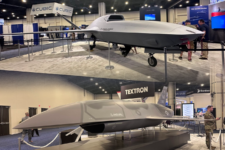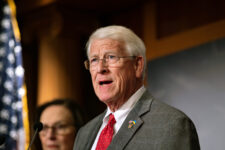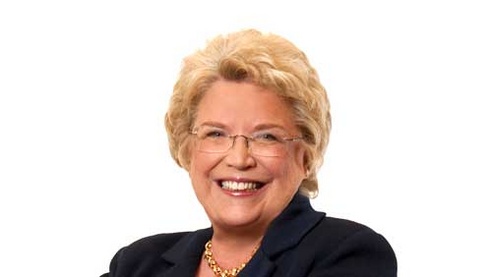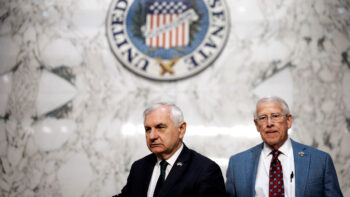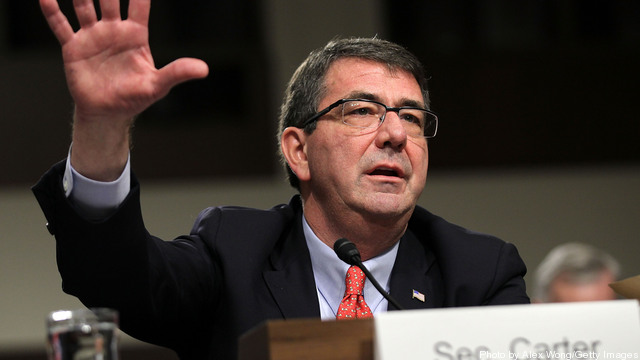 WASHINGTON: Deputy Defense Secretary Ash Carter, Democratic Party stalwart, plans to leave the Defense Department after more than six years there, opening the way for his boss to pick his own deputy.
WASHINGTON: Deputy Defense Secretary Ash Carter, Democratic Party stalwart, plans to leave the Defense Department after more than six years there, opening the way for his boss to pick his own deputy.
There have long been rumors that Defense Secretary Chuck Hagel and Carter did not mesh well and Carter’s visibility has slipped considerably since Hagel took the top slot in February. Pentagon spokesman Geoerge Little moved quickly to dampen speculation that Carter had been pushed or nudged out. “The decision to depart the Pentagon later this year was Deputy Secretary Carter’s and his alone,” Little said in a statement. “At the senior Pentagon leadership staff meeting where the announcement was made, Deputy Secretary Carter received a standing ovation from Secretary Hagel and the rest of the leadership team.”
It’s important to note that Carter has held incredibly demanding jobs at the Pentagon since April 2009 and no one can be expected to stay forever or keep energy levels sky high for so long. Carter began his tenure as the military’s acquisition and logistics czar in April 2009 and led there until October 2011. He was best known as the man who led the effort to turn around and save the F-35 Joint Strike Fighter. As DepSecDef, he’s played a leading role in promoting US military sales to foreign countries, earning wide praise from defense industry insiders for his activism at a crucial time.
Carter will preside over most of the budget deliberations shaping the defense budget due in February, certainly one of the most challenging in decades.
Who would make a good deputy for Hagel, since it’s never too early in Washington to ask who will get your job if you’re dead or resigning?
“The Deputy Secretary of Defense is like a chief operating officer, responsible for managing the Pentagon’s day-to-day operations. That suggests that the best candidate to replace Ash Carter would be a person with deep executive experience, rather than another academic,” opined Loren Thompson, member of the Breaking Defense Board of Contributors and defense consultant, when we asked if he was hearing any whispers yet. “I vote for Linda Hudson, outgoing CEO of BAE Systems, Inc., who has distinguished herself running several big military contractors and just happens to be a Democrat.”
Hudson is supposed to leave BAE no later than March, and one assumes she could leave earlier. She’s been CEO of the American subsidiary of the British defense giant, BAE Systems PLC, since 2009 and is widely respected. Her deep knowledge of the Army, culled from years as head of the BAE Systems’ Land & Armaments operating group, would serve her well since the service is likely to undergo the most wrenching changes of all the services over the next five years. She also know the Air Force pretty well, since her company was called on to begin work on a second helmet for the F-35 (ended today) and is pushing hard to sell the Air Force its next-generation trainer.
Hudson has worked at many of the biggest defense companies throughout her career. Since she’s almost certainly hit the apex of her industry career, this would provide a fine capstone. And she would not face as many complex ethical and financial hurdles (or disincentives) as so many other candidates for senior Pentagon jobs have faced in the last decade. The Obama administration has faced enormous difficulties finding good industry recruits and has relied heavily on academia and Capitol Hill to fill senior positions.
Defense industry could see big shakeup under Trump: 2025 Preview
President Donald Trump had a hands-on approach with the defense industry during his first administration. This time? Don’t rule it out.


